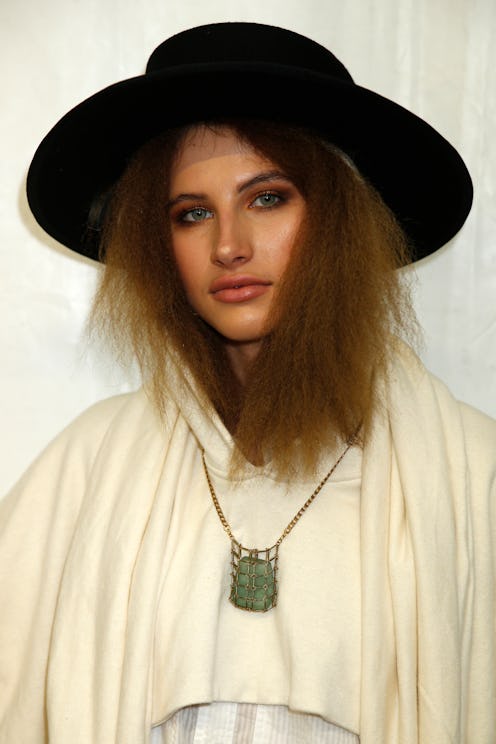(Beauty)
The Secret To Looking Well-Rested Is Actually Pretty Obvious

A few months ago, an ad appeared in my Facebook feed promoting one new glow-giving, skin-brightening beauty product or another. “Because who doesn't want to look like they sleep seven hours a night?" it read. This struck me as strange. I mean, if you really want to know how to look like you've had eight hours of sleep (which is the amount most doctors recommend), the answer should be pretty obvious: Get a full night’s sleep.
Ah, if only it were that easy. According to a recent report from wellness platform Mind Body, 60 percent of respondents in the United States say they’re frequently exhausted at work — not just tired, exhausted. Almost 22 percent say they nap in their car during breaks. These statistics point to Americans’ fractured relationship with rest: Thanks to the all-pervasive productivity mindset, people don’t have time to get the sleep they need, or at least, are not prioritizing time to sleep. Yet many spend inordinate amounts of time and money to outsource the look and feel of a good night’s sleep: $7 lattes for energy, under-eye fillers to smooth out dark circles, and so many beauty products. But really, healthy skin can’t be outsourced — there’s no ordering it on UberEats at 2am.
When it comes to the skin, sleep is a period of regeneration and repair. Your barrier has been hard at work all day battling potential aggressors — UV exposure, environmental pollution, blue light from electronics — so while the body sleeps, “the skin uses a variety of enzymes to repair DNA, replace old cells, and produce collagen,” Dr. Aanand Geria, M.D., F.A.A.D., a dermatologist with Geria Dermatology in New Jersey, tells The Zoe Report. “Getting a good night’s sleep is also associated with improved hydration of the skin.” This repair process takes place at the “early onset” of deep sleep.
“During sleep we are able to balance cortisol and blood sugar levels,” a representative for HUM Nutrition, known for its Beauty Zzzz sleep supplement, tells TZR. This cortisol balancing act has a big impact on the skin. Dr. Geria notes that without roughly seven hours of sleep per night, cortisol levels may stay elevated throughout the day. “This can be associated with impaired wound healing, as well as exacerbations of acne, eczema, and psoriasis,” he says. These effects — repair, renewal, collagen production, hormone balance — can’t be replaced by piling on the products.
A 2018 survey from mattress brand Sealy puts these processes in perspective: 42 percent of well-rested people reported brighter eyes, 20 percent reported clearer skin, and 17 percent reported fewer wrinkles. So while, yes, Facebook ad, I would like to look like I got seven hours of sleep, I’m starting to suspect an eye cream is not the way to do it.
Ready to get actual beauty sleep? Eliminate major electronics from your bedroom, experts say, and put your phone away about an hour before bedtime. (Blue light stimulates the brain, making it harder to drift off.) If you have trouble falling asleep, try a melatonin supplement — but if you have trouble staying asleep, Dr. Nadia Musavvir, N.D., a naturopathic doctor who specializes in skin health, suggests mixing a teaspoon of nutmeg into some coconut milk before bed. “Nutmeg, originally from Indonesia, has been used medicinally for many ailments, including insomnia,” she tells TZR. A light-blocking eye mask may help, especially one made out of material that aids in cell regeneration, like Lunya’s Restore Eye Mask.
Of course, a full night’s sleep isn’t always possible — hello, new parents, grad school students, side-hustlers — and that’s OK. A true reprioritization of rest will require a major cultural shift, and Mind Body predicts it's on the way. In the meantime, maybe take the time you would've spent at your next tear trough filler appointment and nap in your car.